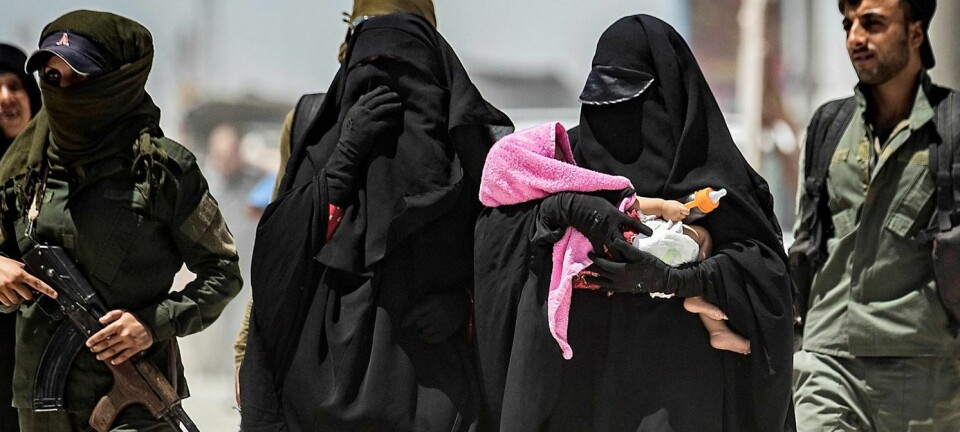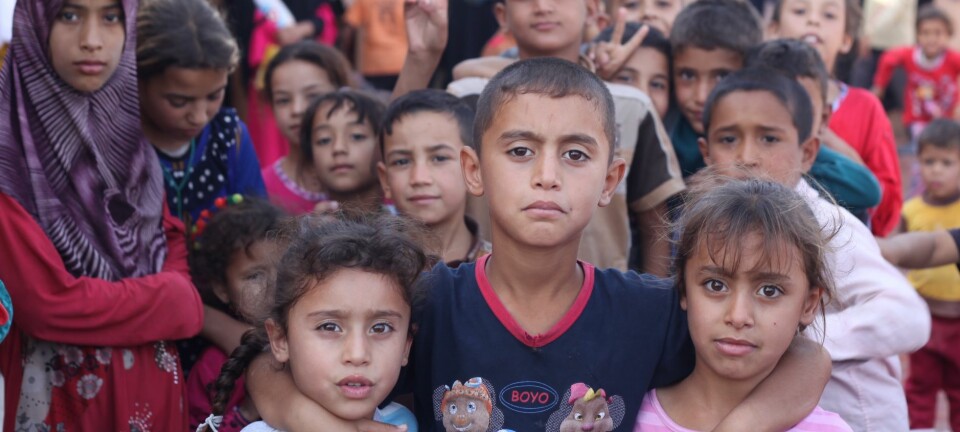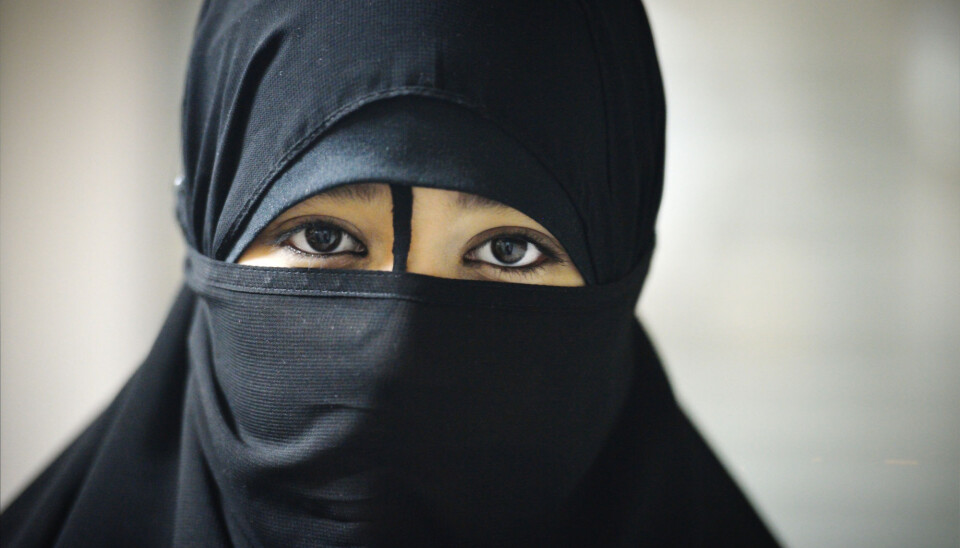
European female ISIS supporters feel like strangers in their own country
On the web, they cultivate their sense of exclusion with other like-minded women, according to one researcher’s interpretation of Facebook profiles in Europe.
They call themselves the «mothers of holy war» and have profile pictures showing women in niqabs, the ISIS flag, paradise-like landscapes and quotes by extreme Islamists.
Young European women discuss online how they can live according to the demands of the terrorist organization ISIS.
"They’re very concerned with things that may not be that important for most people. Can you use coloured shoelaces? No, they have to be black. Can you pluck your eyebrows? No, you can’t," says linguist Anne Birgitta Nilsen, a professor at OsloMet.
Nilsen has studied about 250 Facebook profiles of women who expressed their support for ISIS between 2014 and 2017.
The young sympathizers are motivated by a literal interpretation of religion that regulates the minutiae of their lives. Maybe it feels safe and comfortable not to have to make the decisions that we have to make every day. And the strict guidelines create a community where everyone agrees on how things are done.
No Norwegians
The ISIS supporters’ lists of Facebook friends are limited, which may indicate that the profiles were created to find others of similar persuasion. They do not accept friends of the opposite sex.
Based on their language choices, the women probably lived in the Netherlands, Belgium, Germany and the United Kingdom.
One woman said hello from Antwerp and asked if anyone there wanted to meet up.
None of the women appeared to be in Norway.
"There are very few such Norwegian profiles, and it would be difficult to anonymise them," Nilsen says.
A stranger at home
The Arabic word ghurba – translated as estrangement or separation – comes up repeatedly in the Facebook profiles. The term has been used by ISIS to portray a stranger among unbelievers.
Women may feel alienated from the societies in which they live, which are built on values and norms different from their own.
"They talk a lot about how difficult it is to live in the countries where they reside, due to the niqab ban and hospitals where men and women are in the same spaces," Nilsen says.
But the researcher believes the women’s experience is about more than religion.
"Some of the women who are attracted to extreme groups feel a lack of belonging or that they are different from their peers. They don’t feel fully accepted by society," she says.
Online they find others who also feel this way. Together they cultivate their social exclusion.
"I think that [shared estrangement] attracts these women. If you somehow feel that you’ve failed a little in society, you might be told that’s completely normal for most of us. It gets redefined as something that’s good," says Nilsen.
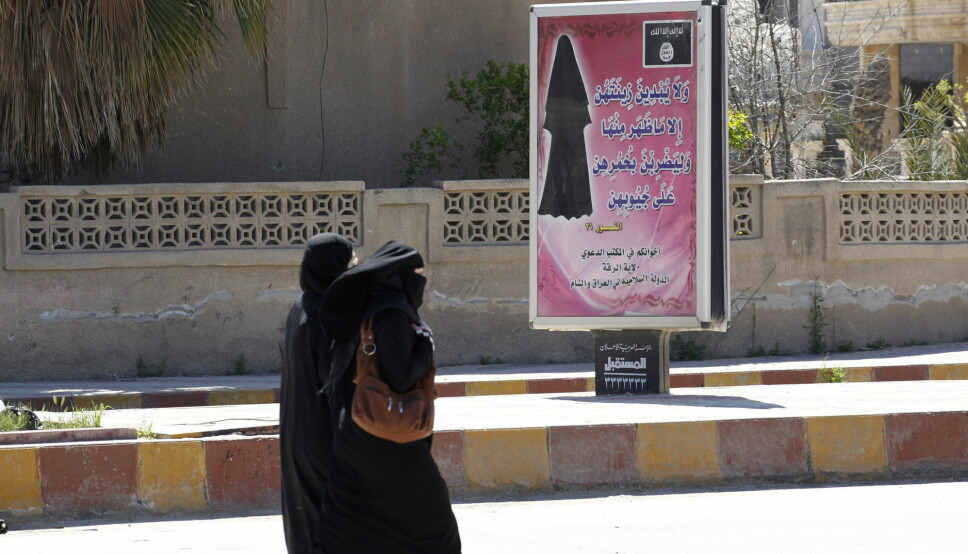
Can become isolated
The women are well received by their fellow sisters.
"If some girls mentioned things being awkward at home, someone would quickly help them find another place to live," Nilsen says.
There can be many reasons why women seek out this community.
Other researchers have pointed to various types of people who are drawn to extremism, from the socially maladapted to excitement-seeking and politically religious types.
Female ISIS sympathizers say they feel persecuted because of their faith. They believe everyone else, even other Muslims who do not follow their rules, are infidels.
"They believe that only orthodox believers have understood how to live their lives. This probably makes them feel very special," says Nilsen.
But she believes it can also be dangerous.
"I think this belief can drive young people further into extremism. Being urged to only be with people who hold the same views can lead to isolation," Nilsen says.
Romanticizing martyrdom
Nilsen surmises that the women are teens and young adults. The youngest said she was 14 years old.
"Based on the conversations, they seemed a little immature. There was a lot of talk about getting engaged. They’re as interested in romance as other young women, but they choose other types of men. A holy warrior is great, someone you can be proud of," she says.
The researcher knows nothing about the actual women behind the profiles. The profiles are anonymized, and Nilsen has not checked whether what they say about themselves is true or if they are walking their talk.
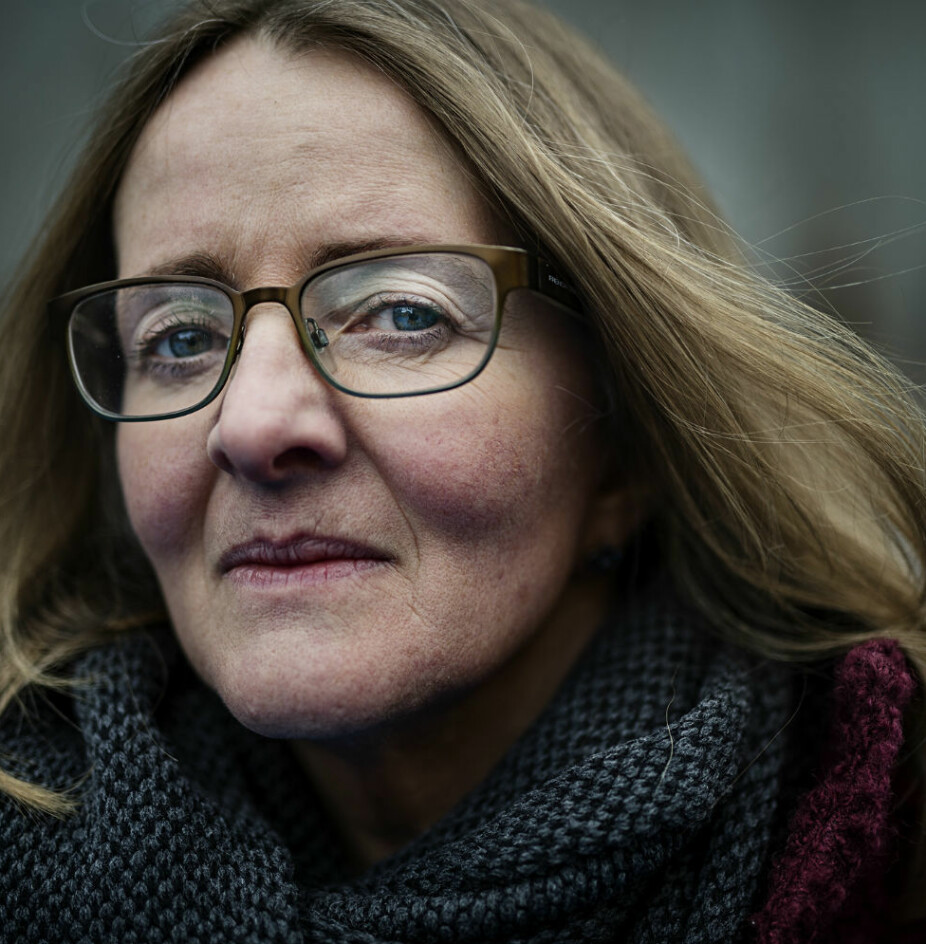
The professor is not that concerned with who the women really are. Her research focuses on how they present themselves.
"They uphold their religious norms and try to appear pious in order to gain entry into the group," she says.
Dreaming of Syria
Some women say they wear the full-length niqab and encounter a lot of harassment on the street.
"It takes courage to wear such a garment," Nilsen says.
Most of the study subjects seem to have grown up in Europe. They write the European languages they use very well.
The women often call themselves migrants. They are not referring to themselves as immigrants in the country they live in, but rather to a desire to emigrate to the Islamic State in Syria.
This was at a time when ISIS had control of significant parts of Syria. Today little of that power remains.
"Some women did apparently travel to Syria. Or at least they posted pictures from there, including of river banks with comments that it was nice there," Nilsen says.
"I have the impression that those who travelled were admired by the others. But I think very few actually had plans to leave even though they had a strong interest in ISIS," she adds.
Disappeared from Facebook
The Facebook profiles she studied are silent now. Many of them have disappeared, others have shown no activity since 2017.
Some accounts may have moved to other platforms, like the Telegram messaging service.
Nilsen and her colleagues recently searched systematically for ISIS sympathizers from Europe on both Facebook and Twitter.
They found no one from Norway, and only a few women in other countries after the two companies decided to clean up and close down such sites. But the extremists are probably still online.
Nilsen has only researched open profiles. Not being able to study closed forums makes doing reasearch on the topic difficult.
"I don’t know if the women travelled to Syria, if someone discovered their activity or if they just lost interest. But I would think that some people thought it was exciting for a while, and then they found meaning elsewhere."
Translated by: Ingrid P. Nuse
Reference:
Anne Birgitta Nilsen: European Female Supporters of the Islamic State: A multimodal discourse analysis of their Facebook profiles. Nordic Journal of Religion and Society, vol. 33, No. 1, 2020. Abstract.
———
Read the Norwegian version of this article on forskning.no








